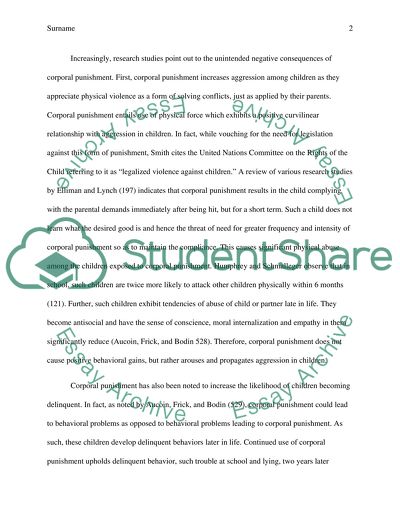Cite this document
(“Punishing children Essay Example | Topics and Well Written Essays - 1250 words”, n.d.)
Retrieved from https://studentshare.org/english/1495082-punishing-children
Retrieved from https://studentshare.org/english/1495082-punishing-children
(Punishing Children Essay Example | Topics and Well Written Essays - 1250 Words)
https://studentshare.org/english/1495082-punishing-children.
https://studentshare.org/english/1495082-punishing-children.
“Punishing Children Essay Example | Topics and Well Written Essays - 1250 Words”, n.d. https://studentshare.org/english/1495082-punishing-children.


